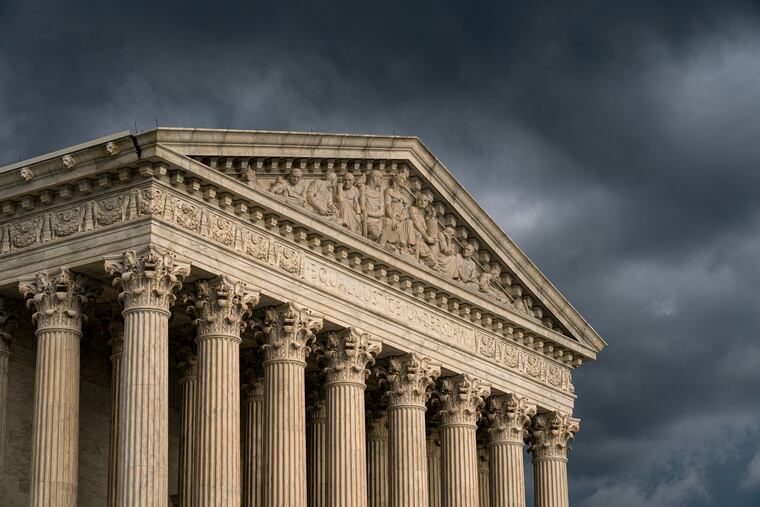Supreme Court to review ruling on Louisiana abortion law
The court could uphold or overturn a 2016 precedent or distinguish it in a way that a restriction deemed unconstitutional in one state is allowed in another.

WASHINGTON — The Supreme Court will review a restrictive Louisiana law that gives the justices the chance to reconsider a recent ruling protecting abortion rights.
The court said Friday it would consider whether the 2014 law requiring doctors at abortion clinics to have admitting privileges at nearby hospitals unduly burdens women's access to abortion. Clinic owners said the effect of the law would be to close most of the state's abortion clinics and leave the state with only one doctor eligible to perform the procedure.
The law is almost identical to a Texas law that the Supreme Court struck down in 2016. But in that case, now retired justice Anthony Kennedy joined the court's four liberals to form a majority. Since then, President Donald Trump has added two new justices who were enthusiastically supported by antiabortion groups.
The court could uphold or overturn that 2016 precedent or distinguish it in a way that a restriction deemed unconstitutional in one state is allowed in another.
It was not a surprise the court accepted the case. Last February, Chief Justice John Roberts Jr. and the court's liberals entered a stay that kept the law from going into effect.
The court's 2016 decision in the Texas case said the admitting-privileges requirement "provides few, if any, health benefits for women, poses a substantial obstacle to women seeking abortions, and constitutes an 'undue burden' on their constitutional right to do so."
Hospitalization after an abortion is rare, all sides agree, and the lack of admitting privileges by the doctor who performed the procedure is not a bar to the woman getting needed medical care. Roberts was one of the dissenters in the 5-3 decision.
Last fall, a panel of the U.S. Court of Appeals for the 5th Circuit upheld the Louisiana law in a 2-1 vote, finding factual distinctions between how the restriction played out in Texas and Louisiana. The full court, considered one of the most conservative of the regional appeals courts, voted not to reconsider the panel's decision.
Dissenting judges said their colleagues in the majority ignored requirements set out in the 2016 decision and seemed intent on giving the high court reason to reconsider that precedent, called Whole Woman's Health v. Hellerstedt.
Judge Jerry Smith, writing for the two-member appeals court majority, said that the court complied with the Supreme Court's decision in Whole Woman's Health by taking a painstakingly close look at the details.
"Unlike in Texas, the [Louisiana law] does not impose a substantial burden on a large fraction of women," he concluded.
It seemed unlikely after the chief justice’s action in February that the court would simply dissolve the stay and allow the law to go into effect.